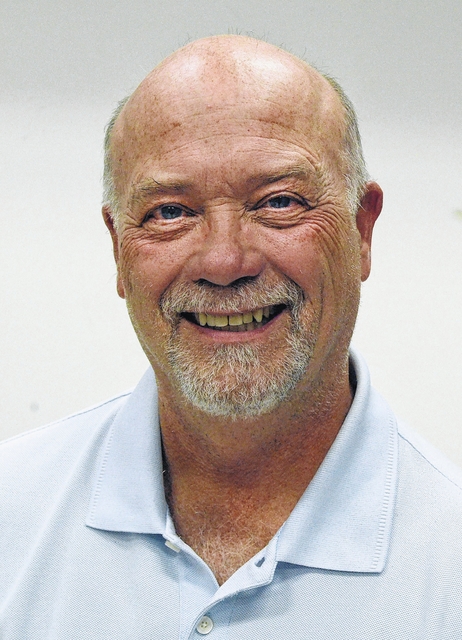The play “Inherit the Wind”, in my opinion, is a true dramatic masterpiece. It’s the fictionalized account of the famous Scopes Monkey Trials that took place in Dayton, Tennessee. In 1925, a teacher named John T. Scopes was tried for violating the Butler Act, which prohibited the teaching of any theory of evolution in Tennessee public schools that wasn’t consistent with the Bible’s version of how we as humans came to be. The high school science teacher did nothing more than introduce his students to Charles Darwin’s Theory of Evolution.
In the actual historical event, Scopes’ defense lawyer was one of the most accomplished and famous lawyers of his times, Clarence Darrow. The prosecuting attorney was equally famous, both as an orator and politician — William Jennings Bryan. It was a trial that captured the attention of the entire country. In the play, the fictional names of the principal figures are Bertram Cates (John Scopes), Henry Drummond (Clarence Darrow) and Mathew Harrison Brady (William Jennings Bryan).
There are so many powerful scenes in the play which debuted in 1955 and in a movie adaptation in 1960, but there’s one scene in particular about which I’ve been thinking a lot lately, prompted by what I so very often see around me. The scene in the play and movie highlights the oratorical skills of Henry Drummond. Showing a flair for unorthodoxy, Drummond calls his legal opponent Brady to the stand as an expert on the Bible. Despite being in his full rights to refuse, Brady’s ego is too great to resist and actually takes the stand.
Drummond tries to make the point that, while progress is good, it often comes with a price, and that Cates, or any educator for that matter, should have the right to introduce his or her students to a wide range of different theories, in this case, to Charles Darwin’s theory.
In Act II, Scene 3, Drummond says to Brady, “Progress has never been a bargain. You’ve got to pay for it. Sometimes I think there’s a man behind a counter who says, ‘All right, you can have a telephone; but you’ll give up privacy, the charm of distance…Mister, you may conquer the air; but the birds will lose their wonder and the clouds will smell like gasoline.’”
Despite those words written by the playwrights Jerome Lawrence and Robert Edison Lee almost seventy years ago, I think there a parallel in today’s world. As for the progress, I’m talking about the technologies of today, especially smart phones and iPads. No one can dispute the marvelous achievement involved in creating these instruments, but what have we given up?
Perhaps the price exacted by Drummond’s man behind a counter is a diminution in our ability to speak directly to one another in a world where so many are so very challenged in the area of social skills. In so many large gatherings, I see people far more involved with their phones and pads than with each other. Recent specific examples during my travels came from my time at airports in Columbus, Dallas and Fort Myers. Both in the gates’ seating areas and also on the planes, I saw so very many peering at screens and tapping away and NOT talking to any of those sharing their same space, including those with whom they came!
And, as for our kids, I have to wonder whether those smart phones and iPads and the time spent indoors scrolling and trolling social media may have a whole lot to do with what I pass when I’m driving. By that I mean empty outdoor basketball courts, ball diamonds devoid of any sandlot activity and empty fields where groups of kids from previous generations gathered under the nurturing rays of the sun to play, to interact and to solve their own disputes. I think if you’re of a similar age as this soon-to-be 72-year-old, you surely know how very much the world has changed.
Overall, I have to wonder whether the marvels of our technology have made us as a society more than a tad less gregarious, a tad less compassionate and a whole lot more self-involved and isolated. And, if that’s the recipe that’s been followed for us to be the recipient of all of our nifty gadgets, perhaps that’s an exceedingly high price to pay.
Yes, that scene from Lawrence and Lee’s play pops into my head so very much as I count off my daily paces and drive down my roads, and I would have to agree with that fictionalized learned counsellor, Henry Drummond. With progress, so very often, what we’ve lost may very well be equal to or greater than what we’ve gained.
John Grindrod is a regular columnist for The Lima News, a freelance writer and editor and the author of two books. Reach him at [email protected].







